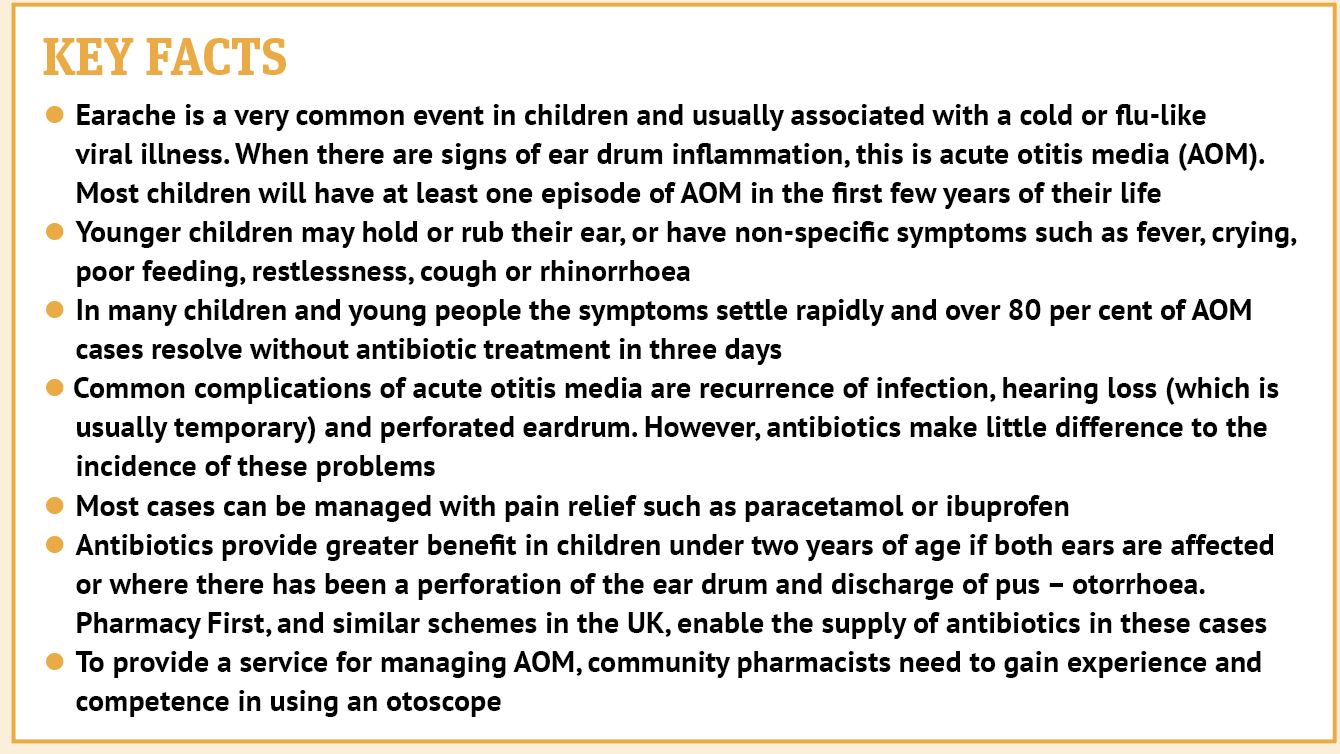Introduction & module overview
Earache is a frequent accompaniment to colds, especially in young children. When inflammation, nasal mucus and congestion are present in the upper respiratory tract, the ear can feel blocked and may be uncomfortable or painful. This is due to inflammation of the throat and nasal passages, and associated blockage of the Eustachian tube.
If the Eustachian tube is blocked, the ear can no longer be cleared or air pressure equilibrated through swallowing, which may make the patient feel uncomfortable and deaf. Sometimes the situation worsens when the middle ear fills up with fluid and is under pressure. When this occurs the ear can become acutely painful (otalgia) but it normally resolves spontaneously.
It is common in young children and usually the best treatment is pain relief medicine.
A secondary infection with inflammation may follow – acute otitis media. The evidence shows that, for many young people, antibiotics make only a small difference in resolving symptoms, which usually settle within a week. Resolution occurs naturally when the blocked Eustachian tube re-opens and the middle ear drains.
Antibiotics in AOM
Research shows that antibiotics provide most benefit in children under two years of age who have pain in both ears, or in those with a painful ear with discharge from that ear (i.e. otorrhoea following ear drum perforation). Despite this, around 60 per cent of all children with symptoms of AOM receive antibiotics in the UK. Otitis media has become less common in recent years, and it is thought this may be due to the use of pneumococcal vaccine in children.
Community pharmacists already advise on earache, referring to the GP when red flags are present or where they feel antibiotics might be needed. With the Pharmacy First service in England and similar schemes elsewhere in the UK, there is an opportunity to examine patients and determine whether antibiotics may be indicated (or not), and to supply these via PGDs when appropriate.
Drawing on the NICE Acute Otitis Media prescribing guideline [NG91], this module will support decision-making and help identify the small number of occasions where antibiotics might be needed.

